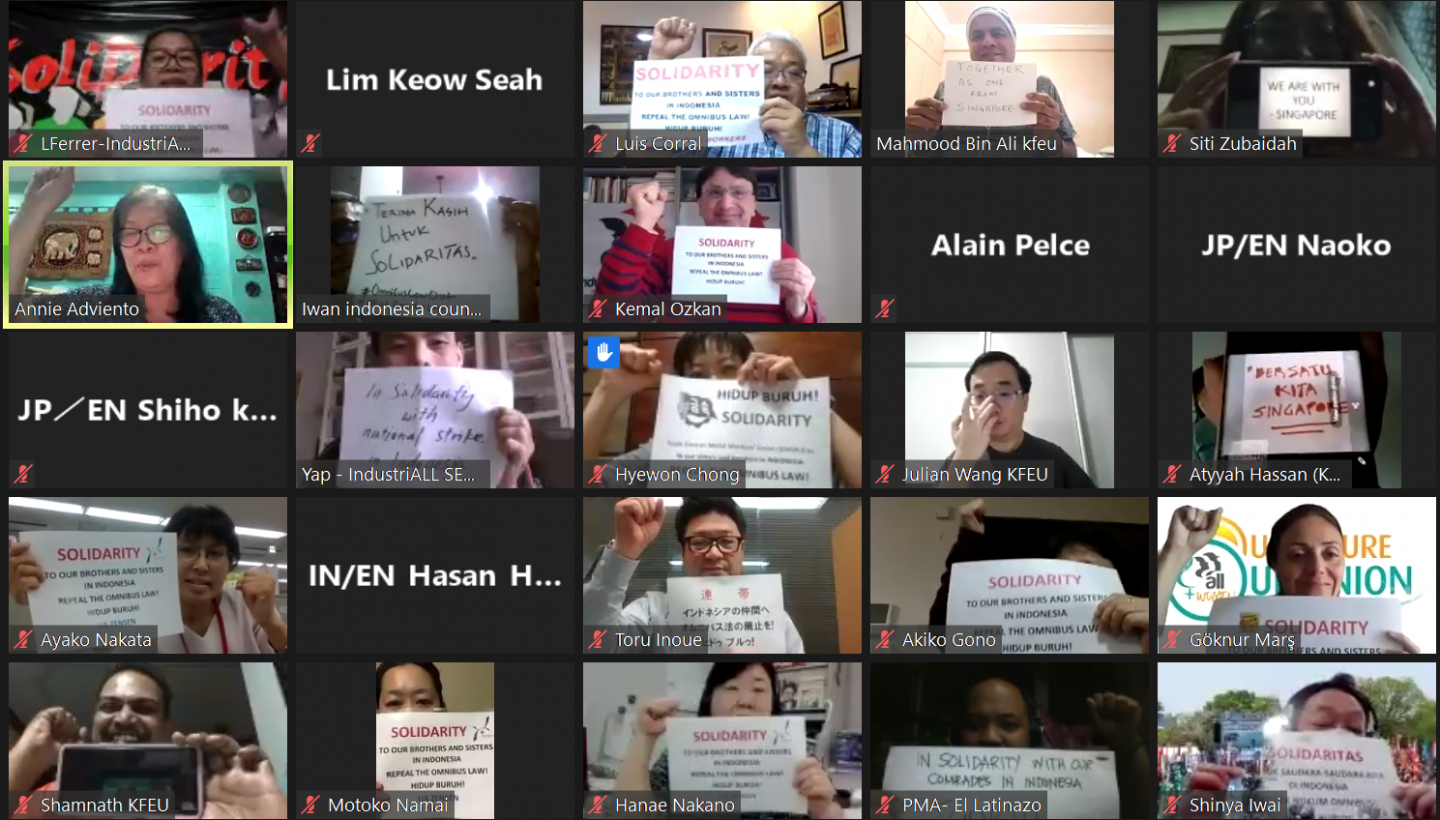Read this article in:
English
8 October, 2020Globalization brings capital and opportunities, but also shapes economic and labour policies that threaten the welfare of workers. Union leaders in South East Asia agree that trade unions must confront regressive labour laws in order to fight for decent work in the region.
In the Philippines, neoliberal policy with low corporate taxes and a business-friendly labour code has become the norm.
Louie Corral, vice president for national and international affairs of Associated Labor Union, says:
“The Trade Union Congress of Philippines estimates that 12 million workers are contractual workers without retirement and welfare benefits. That’s why unions have formed the Nagkaisa Coalition to lobby for and sponsor Security of Tenure bill in the Congress and Senate.
“We are disappointed that President Duterte vetoed the bill, but are now working on a compromise position to close loopholes and determine the scope of contractual work through national tripartite industry councils.”
The new Malaysian government has been ambiguous on its commitment to labour law reforms started by the Pakatan Harapan (PH) government in 2018.
“The PH-led parliament passed the Industrial Relations Act 2020 which has yet to be implemented. We are caught in political uncertainty after the collapse of the PH government. However, our Labour Law Reform Coalition will continue to campaign for reforming the Trade Union Act and the Employment Act.”
Indonesian president Joko Widodo (Jokowi), a businessman prior to joining politics, has been exploring avenues to attract foreign investment and boost the economy. The Omnibus law on job creation has created much discontent in Indonesia and triggered national strikes on 6-8 October.
Iwan Kusmawan, president of IndustriALL Indonesia council, says:
“We mobilized a million members against the Omnibus law which accentuates the erosion of worker’ rights protected in the Manpower Act 2002. Various workers’ benefits have been cut, for example severance pay was reduced from maximum 32 times to 25 times.”
IndustriALL Global Union assistant general secretary Kemal Özkan says :
“Democratic institutions and workers’ rights are under attack due to rising authoritarianism. We stand together with our affiliates in fighting back against a deterioration of labour legislation.”
Photo: Participants showing solidarity with Indonesian workers during the national strike.
